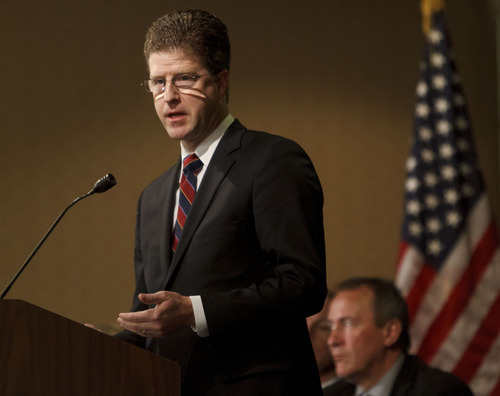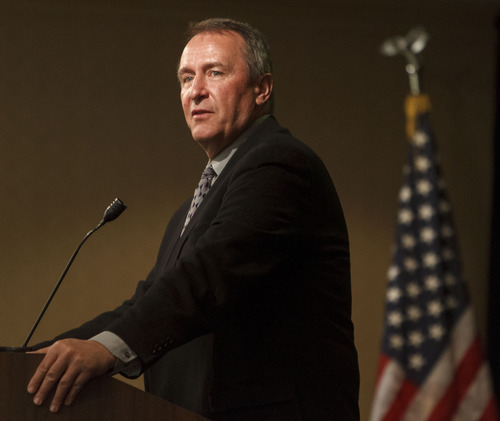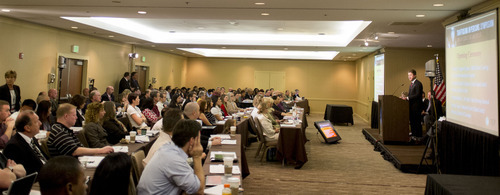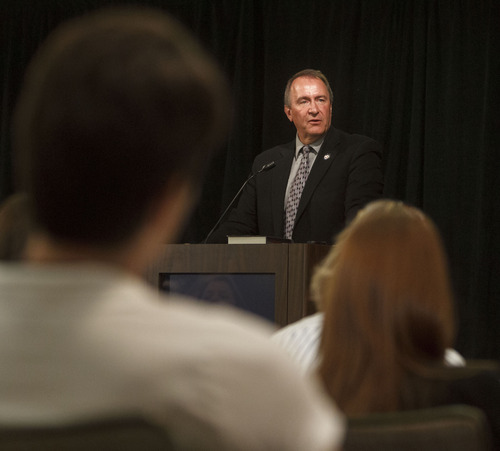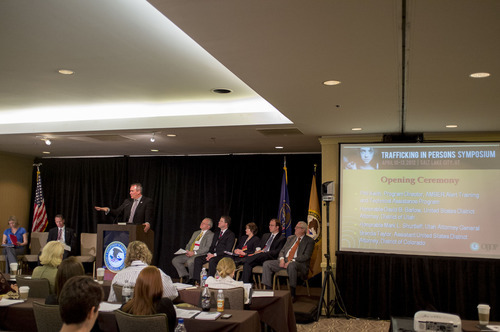This is an archived article that was published on sltrib.com in 2012, and information in the article may be outdated. It is provided only for personal research purposes and may not be reprinted.
One by one, the survivors rose as Holly Smith called their names — each one a victim of human trafficking, each making her way through life as a transformed woman. A baker. A counselor. And, in Smith's case, a microbiologist.
The 34-year-old stood in front at the Trafficking in Persons Symposium on Tuesday in Salt Lake City and spelled out a long journey from age 14, when she was pimped out to an old man by "Nicky" in Atlantic City to her current life shedding light on the trauma of human trafficking.
"An old man walked by and he smiled at me," Smith recalled. "Nicky asked, 'Do you want to date her?' He asked, 'How much?' "
Later during the "transaction," the old man told Smith she "reminded him of his granddaughter."
"After that transaction, Holly was gone," Smith said. "The light went off."
The room full of prosecutors, investigators, academics and advocates for victims sat silently and listened. Her testimony kicked off the four-day symposium designed to tackle human trafficking at all levels: sex slavery, domestic workers held as prisoners and children forced to be soldiers in conflicts around the world.
Utah Attorney General Mark Shurtleff said 12 million children are trafficked across international borders — second only to the drug trade in terms of scope and profitability.
"Slavery exists today," he said, "and we need to talk about these victims."
Shurtleff sat on a panel that explored the difficulties prosecuting the cases, including victims' unwillingness to talk and shortcomings within law enforcement when it comes to offering counseling.
Kirk Torgensen, chief deputy in Shurtleff's office, said many cases are missed because police aren't always trained in how to spot victims of human trafficking — often confusing them for willing prostitutes instead of unwilling pawns.
"Every police officer in every state needs to understand what human trafficking is," he said. "Until we get those officers all knowing what they're looking at, we're going to miss so many cases."
Patricia Davis, associate director of the Embrey Human Rights Program at Southern Methodist University in Dallas, said along with more training and a wider array of tools to target the problem, people need to understand the root causes of human trafficking. Those causes, she said, often can be broken down into key areas, including high profitability for organized crime, cultures that devalue women or an overall lack of respect for human dignity.
She said the cultural aspect — one in which "boys will be boys" — is especially dangerous because victims have no recourse and perpetrators face no consequences.
"It's not about bad people acting in a vacuum," she said. "It's about bad people who act in a culture that doesn't value women."
The conference also addressed the impact of illegal immigration, with Shurtleff saying it was a new area of focus for the state's SECURE Strike Force that, for the past few years, has been shutting down fake-ID mills. With the Legislature granting funding for the next fiscal year, the team is attempting to target those engaged in human trafficking.
The conference runs through Friday at the Hilton Salt Lake City Center.
Twitter: @davemontero


